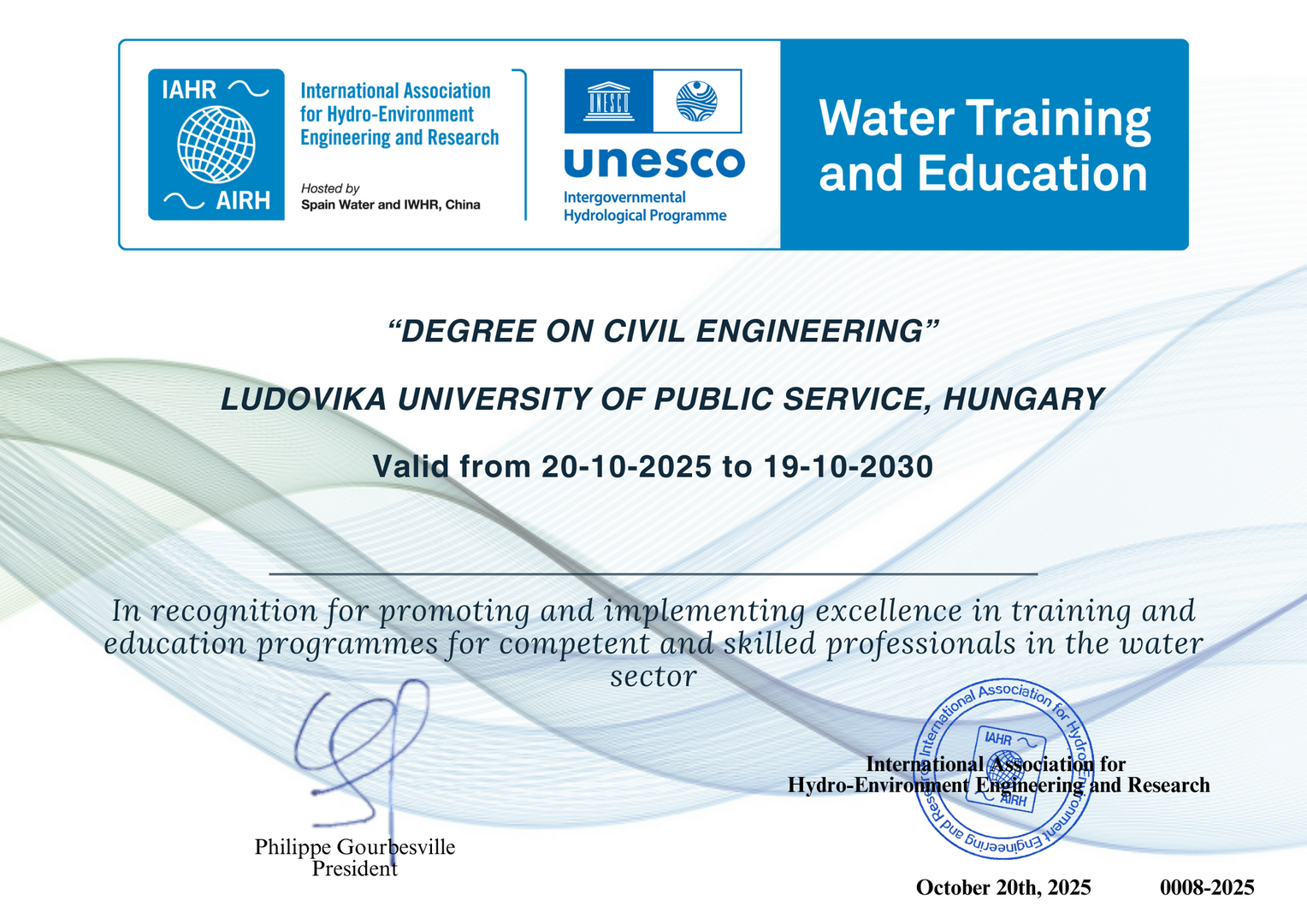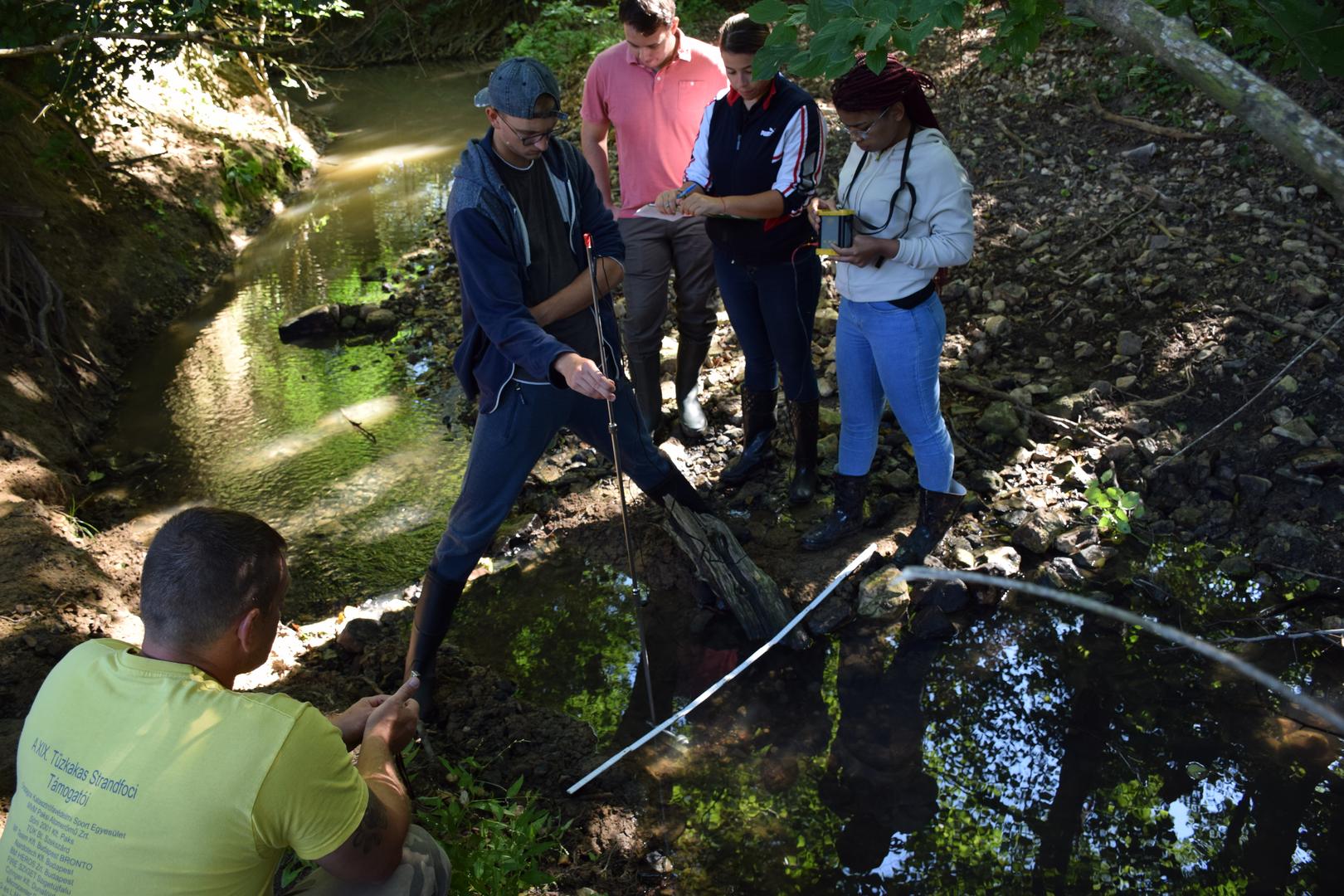BSc in Civil Engineering

Training location: Baja Campus
The aim of the 8-semester course is to produce well-prepared, creative-minded civil engineers, open to innovation, capable of carrying out the construction, maintenance and operation of infrastructure, as well as the tasks of contracting and technical supervision, and of independently managing the design and development processes involved in the course. After graduation, they will be able to find employment in both the public and private sectors. This is where the water management sector is specifically looking for new recruits.
With specialization in Regional water management
The main components of the knowledge of water management and hydraulic engineering are: flood protection, water management, water resources management, river basin management, catchment hydrology, river management, water utilization, with particular emphasis on agricultural water utilization, irrigation, reservoir management, flood control, hydrometry and the relevant directives of the European Union. In addition to operational issues, students also learn about design and monitoring tasks. In the specialization, they acquire specialized knowledge on methods of dealing with water damage management related to floods, inland excess water, droughts and water quality. Participants are also trained in practice in flood protection, field surveying and hydrometry measurements.
Main subjects: Agricultural water utilization; flood protection; Lowland and hill water management; river management; river basin management.
Civil engineers graduating from this specialization most often start their careers in the public administration at regional water authorities or in the civil sector in design and construction companies (e.g. as construction managers, development engineers). After successful completion of the training, they can obtain a license to design and perform expert activities in the fields of water management and water resources management at the Hungarian Chamber of Engineers. Those wishing to continue their studies can easily find the right course for them, both full-time and part-time.
Scholarship opportunities:
Stipendium Hungaricum Scholarship Programme. The application period has ended.
Scholarship for Christian Young People - The application has ended!
Diaspora Scholarship - Application is open! Application deadline: 2 February 2026
You can apply as a TUITION FEE PAYING student by clicking here.
